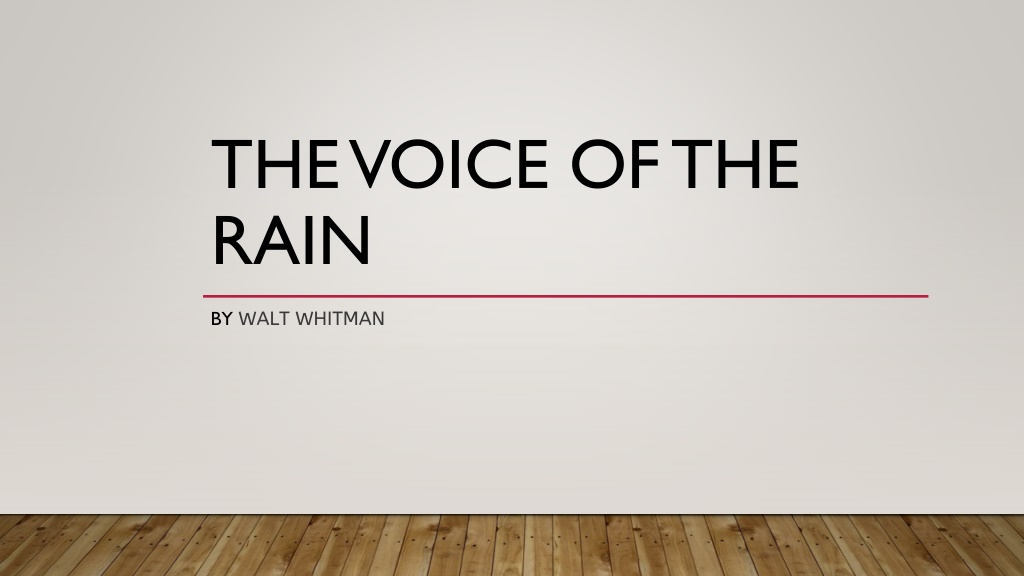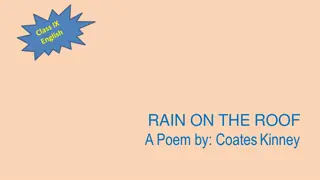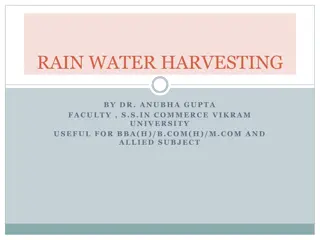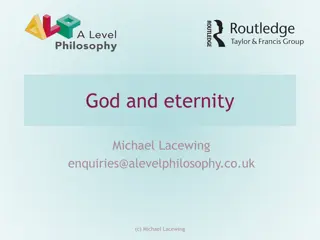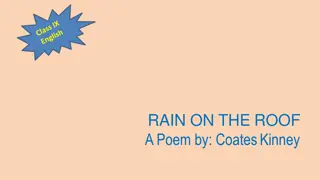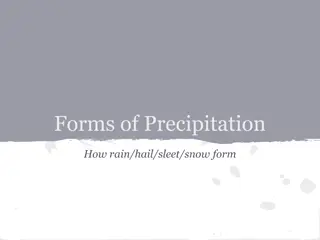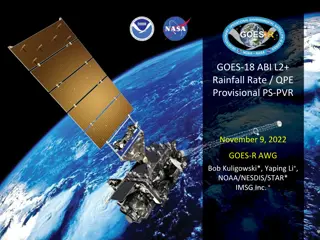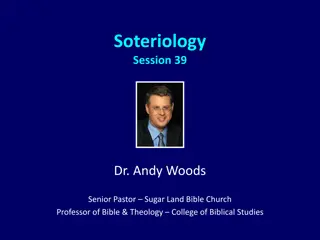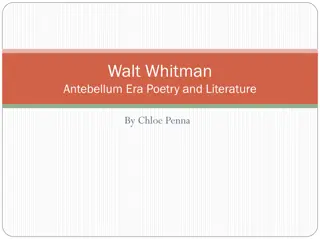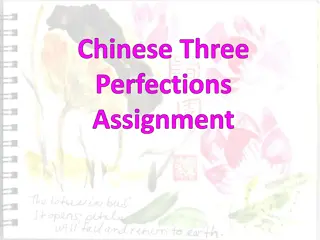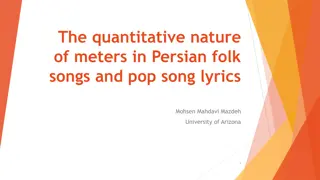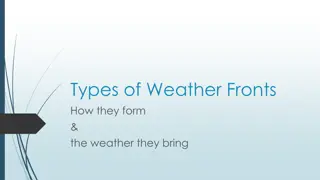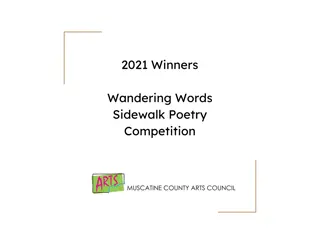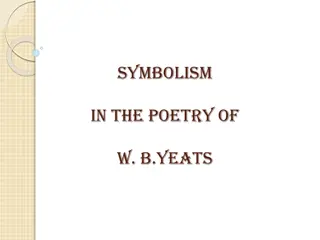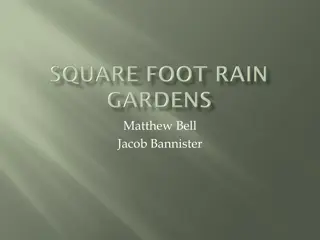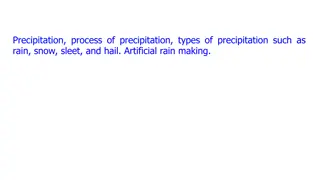The Eternal Role of Rain in Walt Whitman's Poetry
The poem "The Voice of the Rain" by Walt Whitman explores the eternal significance of rain in nurturing, quenching, and purifying the Earth. Through poetic language, Whitman emphasizes the cyclical nature of rain, comparing it to music as both elements enliven the world and return to their origins. The poem highlights the vital role of rain in sustaining life and enhancing the beauty of the Earth.
Download Presentation

Please find below an Image/Link to download the presentation.
The content on the website is provided AS IS for your information and personal use only. It may not be sold, licensed, or shared on other websites without obtaining consent from the author. Download presentation by click this link. If you encounter any issues during the download, it is possible that the publisher has removed the file from their server.
E N D
Presentation Transcript
THE VOICE OF THE RAIN BY WALT WHITMAN
AUTHOR Walt Whitman Name 31 May 1819, West Hills, New York, United States Born 26 March 1892, Camden, New Jersey, United States Died Leaves of Grass, Song of Myself, O Captain! My Captain! Poems Golden Kite Award for Picture Book Illustration Awards
THEME The poem The Voice of the Rain by Walt Whitman signifies the eternal role that the rain plays in nurturing, quenching and purifying the various elements of Earth. The rain returns the favour to its place of origin from where it rises unseen from the depths of the water and from the land. The rain itself is explaining to the reader about its origin, work and its cyclic movement. A comparison has also been drawn between rain and music as both of them make the world more lively and return to their place of origin after fulfilling their purpose.
VOCABULARY thou you eternal everlasting impalpable unable to be felt by touching whence from where vaguely unclearly form d made into a specific shape or form lave wash droughts dry spells atomies very tiny particles latent dormant, inactive reck d cared about unreck d uncared for
EXPLANATION The poem begins with the poet asking for the identity of the soft-falling rain shower. Much to the surprise of the poet, the rain replies to his question which the poet translates for his readers. The rain in its own voice tells the poet that she is the poem of this Earth. The rain is trying to say that, as music or poetry gives pleasure to human beings, the rain gives happiness to mother Earth.
he poet says that the rain is an eternal process, but it takes different forms at different times. It rises from the land and the deep sea in the form of intangible water vapour and goes up to the sky. There it takes an indistinct shape in the form of clouds. Although it changes in its form or shape, its core matter remains the same. Since vapour and clouds contain water they can get transformed into the other. The words impalpable and eternal indicate that nature is not fully understood and some part of it always remains beyond our reach.
The raindrops pour down from above to wash away droughts and dust layers enveloping Earth. It satisfies the thirst of the dry Earth and heals everything that is degrading and is lying lifeless. The showers remove the dust particles and make Earth clean and green. The rain also helps in the germination of seeds which were lying dormant due to a dry spell. The rain is involved in a continued process of giving life on Earth by providing water to dormant seeds and making the Earth more beautiful and full of greenery. Rain helps in enhancing the beauty of Earth as, in the absence of water, everything turns dull or lifeless and dust accumulates everywhere.
The last two lines are the poets own words and his reflections upon the answers given by the rain. The poet observes that the life of rain is similar to that of a song. A song or poem is creativity at its best. It has the power to calm, heal, rejuvenate, transform and thrill. In the same way, repeated evaporation and condensation purifies the rain. The entire environment gets drenched in the rain, dust particles settle down and there is greenery everywhere which makes the whole Earth beautiful to look at. The poet therefore draws a parallel between rain and music as both have rhythm and ability to thrill. Both of them rejuvenate and beautify life.
POETIC DEVICES Personification: The rain has been personified as it has been given a voice in the poem. Metaphor: I am the Poem of the Earth . The poet uses a metaphor to compare how the rain leaves the ground to come back to the ground, giving back to it much like a person who leaves its home, only to come back after fulfilling its journey. Simile: In the last two lines, the poet has drawn a parallel between the rain and the song of a poet. Hyperbole: Bottomless sea is an example of hyperbole. The poet describes sea as bottomless which is an exaggerated statement to bring out the desired effect. Imagery: In the first line of the poem, Soft-falling shower gives the reader an image of gentle rain or drizzle. During the dialogue between the poet and the rain, it creates an image of showers or drops of water falling down from the heavens to Earth and infusing it with greenery, purity and beauty.
